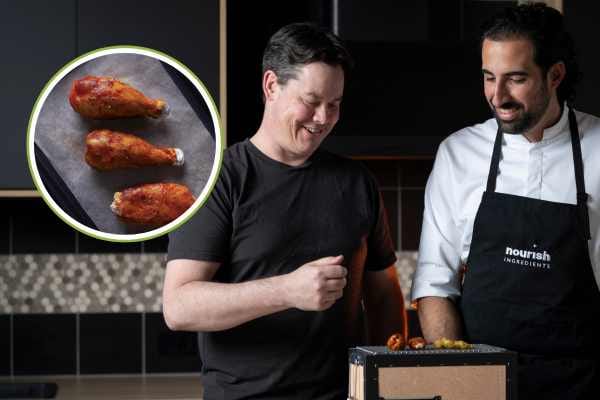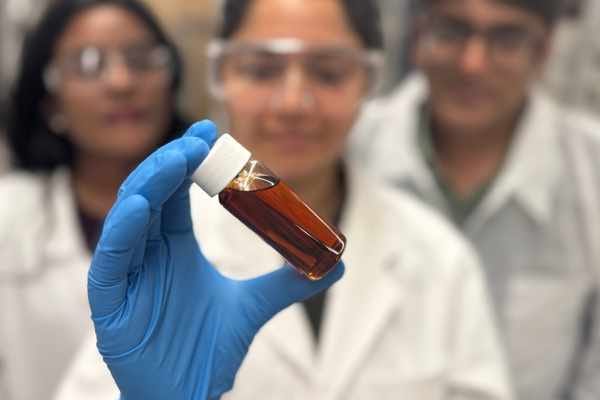A tasty upgrade for plant meat
An Australian startup has scaled production of its animal-free fat for use in the alternative protein market.

Nourish Ingredients, an Australian company creating fats with the taste of animal products, says it has scaled up production to commercial levels.
Nourish announced last week it would soon be delivering its flagship ingredient Tastilux across three continents following the success of its new manufacturing partnership with Chinese biotech firm Cabio Biotech, announced last November.
Tastilux is a precision fermented fat, and its ability to enhance flavour and texture in very small volumes sets it apart and delivers a cost-effective option for food producers looking to boost the appeal of plant-based foods, according to its maker.
Traditional meat farming is a major driver of global emissions with rising demand likely to further draw on the planet’s limited resources. Alternative proteins made from plants, fermentation, or cultivated from animal cells, use a fraction of the land and water required by conventional meat production, according to think tank the Good Food Institute (GFI).
“We are the first in the precision fermentation industry to demonstrate the unbeatable cost of production at this scale,” Nourish chief technical officer Anna El Tahchy said.
“This achievement validates the robustness of our fermentation process and solidifies our partnership with Cabio Biotech.”
Nourish CEO James Petrie said because Cabio already produces a fat for infant formula using the same microorganism behind Tastilux, Nourish was able to leverage the manufacturer’s infrastructure to accelerate its path to commercialisation.
"We are the first in the precision fermentation industry to demonstrate the unbeatable cost of production at this scale."
According to the startup, its research has confirmed that Tastilux delivers “exceptional flavour stability" meaning that even at a very small inclusion level (just 1%) it was able to achieve animal-like authenticity in flavour, mouthfeel, and aroma.
This contributed directly to scalability and affordability, and making it very easy to integrate into commercial products, Petrie said.
“This efficiency means food manufacturers can dramatically improve their products while keeping their costs manageable, which has been a crucial factor in our strong market interest.”
He said the company now had the production capacity to meet 170,000 tonnes of end product demand, due to these low inclusion requirements.
“This means we don’t need massive production volumes to significantly impact the finished product, which considerably reduces the scaling challenges typical in our industry.”
Plant power
While its initial rollout will focus on the plant-based sector where the demand for improved flavour, aroma and mouthfeel continues to grow, Petrie said Nourish was now fielding global interest.
“While Cabio is our current key manufacturing partner, we’re working with several global food companies who are excited about how our product unlocks flavours previously unavailable to them,” he said.
“Our strategy prioritises markets where there’s strong demand for our products and relatively clear regulatory pathways to commercialisation.”
Tastilux is created using precision fermentation, a process that uses microorganisms to produce specific compounds – in this case, a fat that mimics the taste, aroma and texture of animal-based fats. Nourish says precision fermentation technology allows it to produce these specialised fat molecules efficiently and consistently using a fungal strain naturally found in soil to generate specialised lipid molecules that deliver a meaty sensory experience with only a 1% product inclusion rate.





